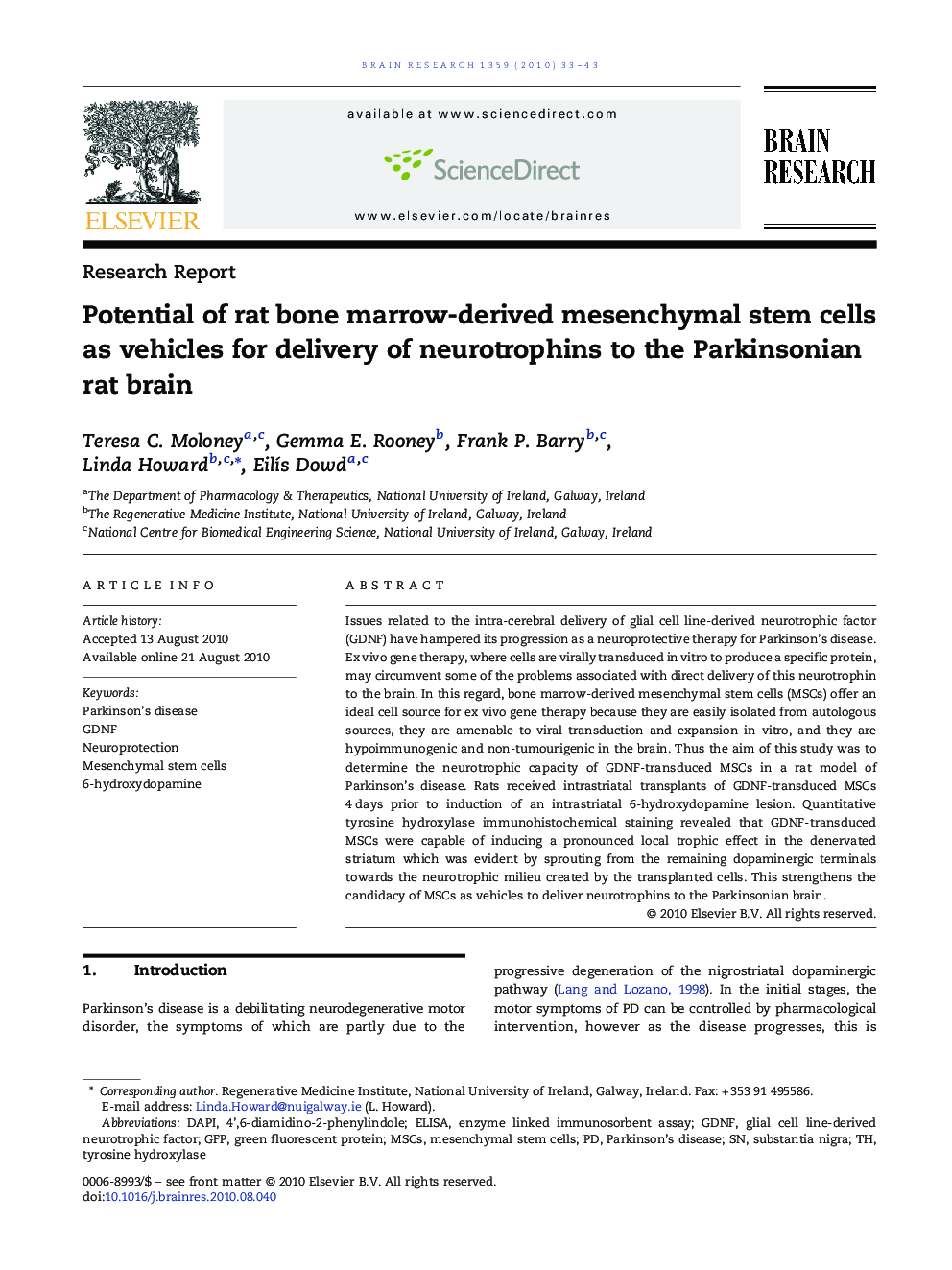| Article ID | Journal | Published Year | Pages | File Type |
|---|---|---|---|---|
| 4326450 | Brain Research | 2010 | 11 Pages |
Issues related to the intra-cerebral delivery of glial cell line-derived neurotrophic factor (GDNF) have hampered its progression as a neuroprotective therapy for Parkinson's disease. Ex vivo gene therapy, where cells are virally transduced in vitro to produce a specific protein, may circumvent some of the problems associated with direct delivery of this neurotrophin to the brain. In this regard, bone marrow-derived mesenchymal stem cells (MSCs) offer an ideal cell source for ex vivo gene therapy because they are easily isolated from autologous sources, they are amenable to viral transduction and expansion in vitro, and they are hypoimmunogenic and non-tumourigenic in the brain. Thus the aim of this study was to determine the neurotrophic capacity of GDNF-transduced MSCs in a rat model of Parkinson's disease. Rats received intrastriatal transplants of GDNF-transduced MSCs 4 days prior to induction of an intrastriatal 6-hydroxydopamine lesion. Quantitative tyrosine hydroxylase immunohistochemical staining revealed that GDNF-transduced MSCs were capable of inducing a pronounced local trophic effect in the denervated striatum which was evident by sprouting from the remaining dopaminergic terminals towards the neurotrophic milieu created by the transplanted cells. This strengthens the candidacy of MSCs as vehicles to deliver neurotrophins to the Parkinsonian brain.
Research Highlights► Mesenchymal stem cells (MSCs) can be virally transduced to over-express GDNF ex vivo. ► Transplanted GDNF-transduced MSCs effectively deliver GDNF to the rat striatum. ► GDNF-transduced MSCs induce sprouting from dopaminergic terminals in vivo. ► MSCs may be useful for ex vivo gene therapy if their survival in vivo can be improved.
